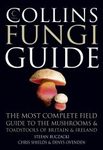About this book
We evolved, like every other species, in a wilderness of parasites, mutualists and pathogens. But we no longer see ourselves as being part of nature and the broader community of life.
In the name of progress and clean living, we have successfully scrubbed much of nature off of our bodies, and have tried to remove whole kinds of life – parasites, bacteria, mutualists, and predators – to allow ourselves to live free of disease and large carnivores. Nature, in this new world, is the landscape outside, a kind of living painting that is pleasant to contemplate but also nice to have escaped. The truth, though, is that while 'clean living' has benefited us in some ways, it has also made us sicker in others, according to biologist Rob Dunn. We are trapped in bodies that evolved to deal with many kinds of interactions with other species. As Dunn reveals, our modern disconnect from the web of life has resulted in unprecedented effects that immunologists, evolutionary biologists, psychologists and other scientists are only beginning to understand. Sickle cell anemia, diabetes, autism, allergies, many anxiety disorders, autoimmune diseases, tooth, jaw, and vision problems, and even heart disease are increasingly plaguing bodies that have been removed from the ecological context in which they existed for millennia.
In this eye-opening, well-researched, and reasoned book, Dunn tells the story of the known and potential consequences of our changing relationships with nature and considers the crossroads at which we find ourselves. He also introduces visionaries who aim to correct these difficulties and re-engage us with the rest of life. As Dunn argues, we must learn to manage with more care and nuance, to create a new kind of living world that contains not just the species that survive deforestation, antibiotics, and disturbance, but is a more intelligent and lush Eden that we can interact with in many different ways.
Customer Reviews
Biography
Rob Dunn is an assistant professor in the department of biology at North Carolina State University. A rising star in popular science journalism, he has written more than eighty magazine articles for National Geographic, Natural History, Scientific American, BBC Wildlife, and Seed magazine. His most recent book, Every Living Thing, dealt with what remains to be discovered, a theme he continues to consider as he visits what we know about the wilderness of our own lives. He lives in Raleigh, North Carolina, with his two children, his wife Monica, and many thousands of wild species, including at least one species of mite living on his head.




































